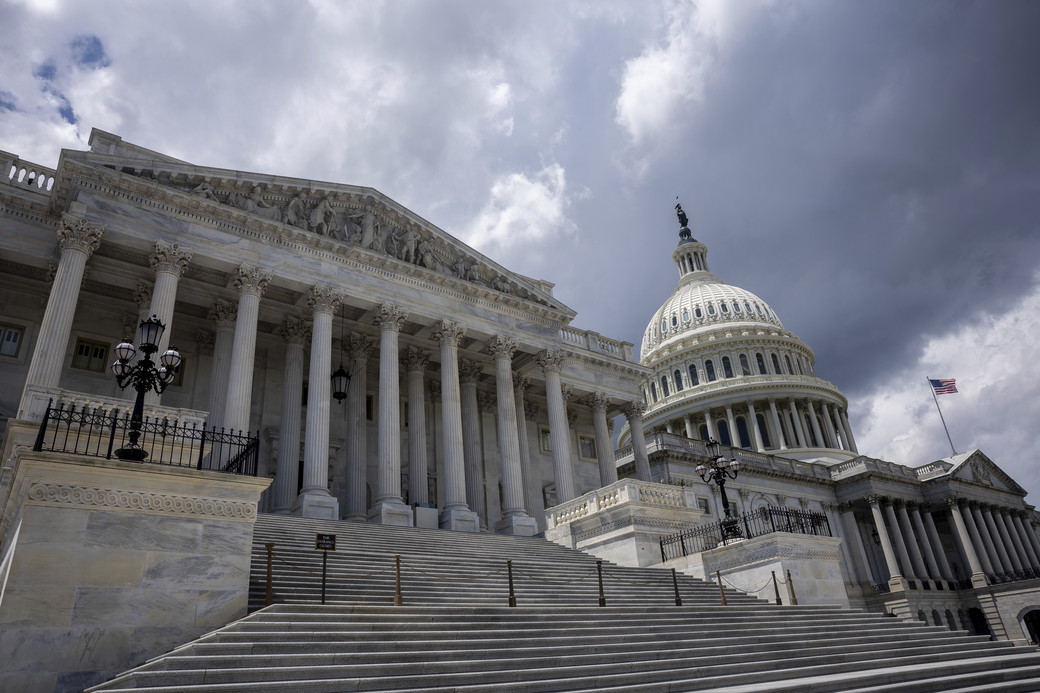In a fast-moving political climate, U.S. lawmakers are reshaping the landscape of clean energy incentives. The “Big Beautiful Bill,” which recently passed the House and is now advancing through the Senate, includes sweeping revisions to the tax credits that have underpinned the clean energy boom.
If passed in its current form, the bill would phase out key wind and solar tax credits much earlier than expected—creating uncertainty and higher costs for energy developers and buyers alike. Let’s break down what’s changing and what it means for power purchase agreements (PPAs).
Quick Snapshot: Where Things Stand
- House: Passed May 22, with significant cuts to clean energy tax credits.
- Senate: On June 16, the Finance Committee released a revised draft reducing cuts in House version.
- Key Changes from existing law in the Senate version:
- For wind and solar, phases out the tech-neutral PTC (Section 45Y) and ITC (Section 48E) starting in 2026:
- 100% credit for projects starting construction in 2025
- 60% in 2026
- 20% in 2027
- 0% after 2027
- Nuclear, batteries, hydro, and geothermal retain existing 30% credits through in service dates of 2033 as long as they begin construction by the end of 2028, with a phase-down to 75% in 2034 and 50% in 2035.
The bill is heading to the Senate floor with a target to pass by July 4th. Expect negotiations and possible amendments, especially as moderate Republicans raise concerns about job losses and manufacturing impacts.
What This Means for Clean Energy Buyers
#1 Future PPAs May Cost More
With tax credit reductions kicking in after 2025, project developers will face higher levelized costs of energy (LCOEs). Expect:
- Rising PPA strike prices
- Tighter project margins
- Greater urgency to lock in contracts while full credits remain available
#2 Battery Storage Becomes a Strategic Advantage
Unlike wind and solar, battery storage maintains a generous ITC window. This makes hybrid or standalone storage PPAs more attractive, especially for:
- Load smoothing
- Peak shaving
- Revenue stacking (e.g., arbitrage, ancillary services)
#3 Legacy PPAs Need Reforecasting
If you’ve signed a PPA with an expected COD after 2025, budget assumptions may be outdated. Buyers may need to:
- Adjust internal models
- Reassess financial risks
- Consider contract amendments or hedging options
#4 Developer Pipeline Rush = Bottlenecks
To secure full tax credits, developers will likely fast-track construction starts before year-end 2025. This may create:
- Interconnection congestion
- Supply chain issues
- Permitting delays could delay project timelines—and affect your portfolio delivery plans.
The Bottom Line
If passed as drafted in the Senate, this bill redefines the economics of clean energy—and makes real-time planning and analytics essential.
Buyers will need to:
- Move quickly to secure IRA-level pricing
- Reforecast portfolios based on new incentives
- Rethink long-term procurement roadmaps and risk mitigation strategies
Storage is now a brighter spot, while solar and wind lose the predictability the IRA promised.
How Verse Helps Energy Buyers Stay Ahead
At Verse, we’re helping energy, sustainability, and finance teams adapt to this uncertainty with tools that:
- Model future PPA economics based on evolving policy scenarios
- Update forecasts in real time as market conditions shift
- Track performance across live contracts and portfolios
- Manage risk using scenario analysis and value-at-risk tools
In a world where the rules can change overnight, dynamic analysis is your biggest asset. Verse built software to help you understand the complexity and stay confident in your clean energy strategy—even when the policy landscape shifts.
Don’t Just React—Plan Proactively
If you’re in the middle of procurement or managing a live PPA portfolio, now is the time to evaluate your exposure. The proposed policy changes will reshape how projects get financed, priced, and delivered.
Book a demo with Verse today to see how our platform can help you forecast, plan, and adapt to a volatile market.
IMPORTANT NOTICE: This page is provided for general informational purposes only and does not constitute individualized advice or a recommendation tailored to your specific circumstances. Verse provides analytics software. The platform provides generalized models, scenarios, and reporting for educational and informational purposes. Verse is not acting and does not claim to act as an advisor to any counterparty, customer, or user of this website and expressly disclaims any fiduciary relationship or similar obligation to act on behalf of or in the best interest of any such counterparty, customer, or user of this website. In addition, Verse is not registered with the U.S. Commodity Futures Trading Commission as a commodity trading advisor in order to provide advice regarding the value or advisability of trading in swaps, futures, options, or other regulated derivatives products. Past or simulated performance is not necessarily indicative of future results. You should consult your own independent legal, accounting, and other professional advisors prior to engaging in any transactions or services described on this website.

